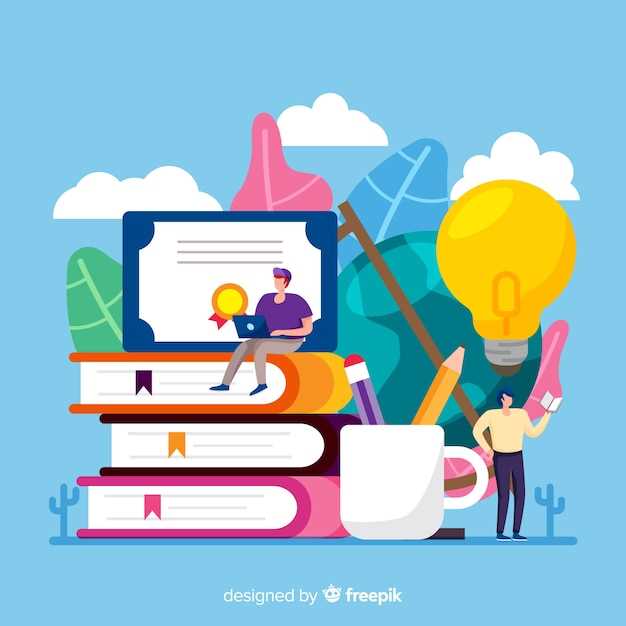
Embark on a groundbreaking journey towards a knowledge revolution, as we unveil our game-changing solution to reshape the way we learn and empower future generations.
Discover a visionary blueprint aimed at reimagining education, as we strive to dismantle the limitations of traditional schooling and liberate minds with innovative approaches.
Join us in our pursuit of a brighter future, where personalized learning experiences foster critical thinking, creativity, and adaptability, equipping students with the skills needed to thrive in an ever-evolving world.
Witness a paradigm shift in education through our holistic approach, ensuring students become active participants in their learning journey, ready to shape the world around them.
Prepare to challenge the status quo and embrace a future where the possibilities are limitless.
The Significance of Learning for Society
In our ever-evolving world, the acquisition of knowledge holds immense importance in nurturing the growth and progress of societies. Understanding the vast significance of education enables individuals to grasp the significance of intellectual development, the advancement of skills, and the cultivation of critical thinking.
The Power of Knowledge
Education empowers individuals to broaden their perspectives, making them more aware and informed about various aspects of life. With knowledge comes the ability to comprehend and analyze complex issues, such as social, economic, and environmental challenges. This understanding allows individuals to make informed decisions, contributing to the betterment of society as a whole.
Equipping Future Generations
Education plays a vital role in shaping the minds and characters of future generations. By providing young individuals with quality education, we equip them with the necessary tools and skills to face the challenges of an ever-changing world. Education not only imparts knowledge but also instills values such as tolerance, empathy, and respect, fostering a compassionate and harmonious society.
| Benefits of Education in Society | Impact |
|---|---|
| Increased economic opportunities | Reduction of poverty and inequality |
| Enhanced social cohesion | Stronger communities and a sense of belonging |
| Promotion of cultural preservation | Preservation of diversity and heritage |
| Improved healthcare and well-being | Healthier and more prosperous societies |
Investing in education today is planting the seeds for a brighter future. Education empowers individuals, drives progress, and cultivates a society that can tackle the challenges and opportunities of the world. Let us recognize and embrace the importance of education as a catalyst for positive change!
Elevating Educational Standards for Success
As we envision a future filled with opportunities, it becomes imperative to push the boundaries of what defines a truly exceptional educational system. By striving for excellence, fostering innovation, and embracing forward-thinking methodologies, we can create an educational environment that propels individuals towards unparalleled success.
With a focus on continuous improvement, we aim to cultivate an educational landscape that is dynamic, inclusive, and responsive to the ever-evolving needs of learners. By championing rigorous academic standards and promoting intellectual curiosity, we empower students to acquire the skills, knowledge, and resilience necessary to thrive in the modern world.
Embracing the cutting-edge possibilities offered by technology, we enable personalized learning experiences that cater to the unique strengths and passions of each student. By harnessing the power of digital tools, interactive platforms, and collaborative networks, we foster an engaging educational ecosystem that transcends traditional boundaries.
One of our foremost objectives is to cultivate a culture of lifelong learning, where the pursuit of knowledge extends far beyond the classroom walls. By dedicating ourselves to instilling a love for learning, critical thinking, and problem-solving, we equip students with the essential toolkit to navigate complex challenges and adapt in an ever-changing global landscape.
At the heart of our endeavor is a commitment to equity and inclusivity. By striving for equal access to quality education and removing barriers to learning, we ensure that every individual has the opportunity to unlock their full potential. Through diverse perspectives, collaboration, and empathy, we create a nurturing environment that celebrates the richness of our global tapestry.
As we continue on this journey of educational transformation, we invite you to join us in building a brighter future for generations to come. Together, we can elevate educational standards, inspire lifelong learners, and shape a world where every individual can thrive and succeed.
The Role of Innovative Teaching Methods
In today’s ever-evolving world of education, the quest for progress and improvement is constant. As we strive to create a brighter future for our students, it is pivotal to explore and embrace innovative teaching methods that break away from traditional approaches.
Engaging Students through Interactive Learning
One crucial aspect of innovative teaching methods is the ability to engage students through interactive learning experiences. By encouraging active participation and hands-on activities, educators can spark curiosity and foster a deeper understanding of the subject matter. Through the utilization of technology, gamification, and collaborative projects, students are empowered to take ownership of their learning journey.
Cultivating Critical Thinking and Creativity

Innovative teaching methods also emphasize the cultivation of critical thinking and creativity among students. By incorporating problem-solving exercises, open-ended questions, and real-world applications, educators can empower learners to think outside the box, challenge assumptions, and develop unique solutions. This nurtures their ability to adapt, innovate, and thrive in an ever-changing society.
Furthermore, innovative teaching methods promote inclusivity and cater to diverse learning styles. By recognizing and valuing the individual strengths and interests of each student, educators can create personalized learning experiences that maximize their potential. This not only enhances academic outcomes but also cultivates a love for learning and self-motivation.
As we embrace the role of innovative teaching methods, we embark on a journey towards educational transformation. By continuously exploring and implementing these approaches, we empower our students to become lifelong learners, equipped with the skills and mindset necessary to shape a brighter future.
The Need for Comprehensive School Reform
In today’s rapidly evolving world, the transformation of our educational system becomes crucial in shaping a brighter future. Our society demands a comprehensive reformation that goes beyond traditional approaches. Recognizing the pressing need for change, Ellis’s Blueprint for a Brighter Future provides an innovative solution to meet the challenges of the modern era.
- Enhancing student engagement: A comprehensive school reform is essential for creating an educational environment that fosters active participation and enthusiasm among students. By implementing strategies that promote collaboration, critical thinking, and practical application of knowledge, we can create an engaging learning experience for the next generation.
- Addressing individual needs: Each student is unique, possessing different abilities, strengths, and learning styles. Comprehensive reform aims to personalize education by providing tailored support, differentiated instruction, and inclusive classrooms. This approach ensures that every student can thrive and reach their full potential.
- Fostering creativity and innovation: In an era characterized by rapid technological advancements and evolving job markets, schools must equip students with the skills necessary to adapt and innovate. Through reform, we can prioritize creativity, critical thinking, problem-solving, and entrepreneurship to prepare students to succeed in the dynamic future ahead.
- Promoting equity and inclusivity: Comprehensive reform acknowledges the importance of equity in education and strives to create an inclusive educational system. It aims to bridge the equity gap, providing equal opportunities for all students, regardless of their socio-economic background, race, ethnicity, or gender. Inclusive schools foster respect, understanding, and social cohesion among students.
- Collaboration with stakeholders: The success of comprehensive school reform relies on strong collaboration among educators, parents, policymakers, and the community. By involving all stakeholders, we can collectively identify challenges, develop effective strategies, and implement sustainable changes that lead to a brighter and more prosperous future for our children.
Embracing comprehensive school reform is our pathway to creating an educational system that not only prepares students academically but also equips them with the skills, knowledge, and values necessary for success in the 21st century. The transformative power of Ellis’s Blueprint paves the way for a brighter future where education becomes a catalyst for positive change and individual growth.
Redefining Curriculum to Enhance Learning
Innovation and progress in pedagogy are necessary to foster a constructive and effective learning environment. To achieve this, it is crucial to rethink the structure and content of the curriculum, creating a dynamic and comprehensive approach that maximizes learning potential. This section aims to explore the key aspects of curriculum redefinition, highlighting the importance of adaptability, relevance, and student-centeredness.
1. Diversifying Content: A well-rounded curriculum goes beyond traditional subjects, incorporating a wide range of disciplines and areas of expertise. By expanding the horizons of what is taught, students are exposed to various perspectives, enabling them to develop critical thinking skills and gain a deeper understanding of the world around them. Emphasizing interdisciplinary connections promotes learners’ ability to connect ideas and engage in meaningful, holistic learning experiences.
2. Personalizing Learning: Recognizing that every student is unique and possesses different strengths and interests, a redefined curriculum focuses on individualized approaches. By allowing students to pursue their passions and tailor their learning paths, they become more engaged, motivated, and self-directed. Differentiated instruction strategies and flexible pathways empower learners to take ownership of their education, fostering a passion for lifelong learning.
3. Integrating Technology: In an increasingly digital world, incorporating technology into the curriculum is vital for preparing students for the challenges of the future. Integrating educational technologies equips learners with essential digital literacy skills, while also facilitating interactive and collaborative learning experiences. Through the effective use of technology, students can access a wealth of information and resources, enhancing their ability to explore, problem-solve, and create.
4. Cultivating Real-World Connections: Education should bridge the gap between the classroom and the real world, emphasizing practical application and relevance. A redefined curriculum incorporates real-life experiences, hands-on activities, and community engagement opportunities. By connecting learning to authentic, meaningful contexts, students develop a deeper appreciation for the value and applicability of their knowledge, preparing them for success in the future.
5. Emphasizing Social-Emotional Learning: To meet the holistic needs of students, a comprehensive curriculum prioritizes the development of social and emotional skills. By addressing topics such as empathy, resilience, and self-awareness, students gain the necessary tools to navigate challenges, build positive relationships, and thrive in their personal and professional lives. Fostering social-emotional learning alongside academic content creates a supportive and nurturing learning environment where students can flourish.
In conclusion, redefining curriculum to enhance learning encompasses diversifying content, personalizing learning, integrating technology, cultivating real-world connections, and emphasizing social-emotional learning. By embracing these fundamental principles, educators can create an educational framework that empowers students, fosters their growth, and prepares them for a future full of possibilities.
Investing in Educator Professional Development
Elevating the expertise of educators is crucial for the advancement and enhancement of our educational system. By investing in continuous professional development, we can empower educators to acquire the knowledge, skills, and strategies necessary to navigate the ever-evolving landscape of education. This section explores the significance of supporting educators in their professional growth and the benefits it brings to students, schools, and the broader community.
Enhancing Teacher Skills and Knowledge
Continuous professional development provides teachers with opportunities to deepen their subject knowledge, explore innovative teaching methods, and stay updated with the latest educational research and advancements. Through workshops, conferences, and collaborative learning communities, educators can broaden their instructional repertoire, enabling them to create engaging and effective learning experiences for their students. By honing their skills and expanding their knowledge, teachers become better equipped to meet the diverse needs and learning styles of their students.
Cultivating Teacher Leadership

Investing in professional development also fosters teacher leadership within schools and beyond. By providing educators with the resources and support to take on leadership roles, such as mentoring novice teachers or leading curriculum development initiatives, schools can create a culture of shared expertise and continuous improvement. Empowering teachers to contribute to decision-making processes and professional learning communities not only enhances their own professional growth but also enables them to positively influence their colleagues and ultimately, the entire school community.
| Benefits of Investing in Educator Professional Development |
|---|
| Improved student outcomes |
| Increased job satisfaction and retention rates among educators |
| Enhanced collaboration and knowledge sharing among teachers |
| Improved school performance and reputation |
| Higher levels of innovation and instructional effectiveness |
